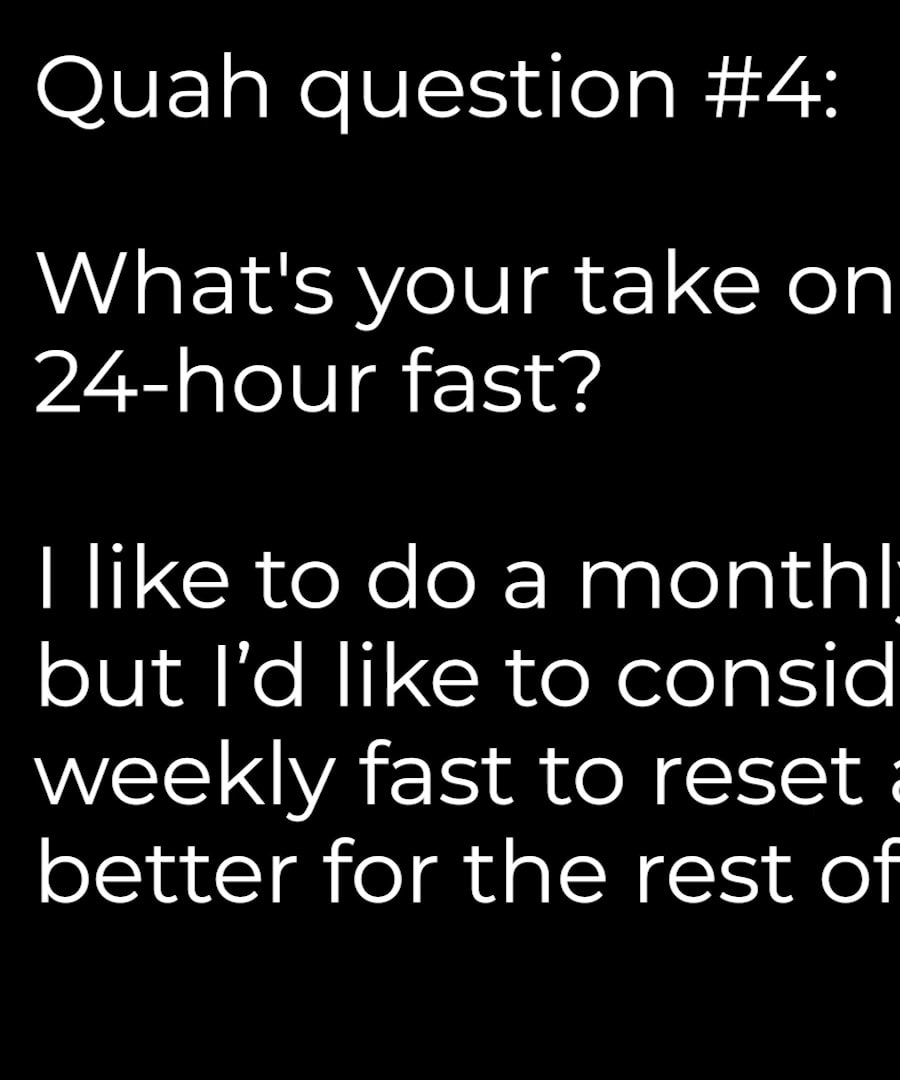what does the supplement GABA do and when is it best tot take it
Sources:
GABA, or gamma-aminobutyric acid, is a neurotransmitter that plays a key role in regulating nervous system activity and has a calming effect on the brain. It is often used as a supplement to promote relaxation, reduce stress, and improve sleep.
For optimal benefits, it is generally recommended to take GABA supplements in the evening or before bedtime. This timing aligns with its calming effects, potentially aiding in the onset and quality of sleep 1 .
RELATED QUESTIONSTell me more about GABA and its effects.
Sources:
GABA, or gamma-aminobutyric acid, acts as an inhibitory neurotransmitter that helps reduce neuronal excitability throughout the nervous system, promoting relaxation and stress reduction. In the context of supplements, GABA is often included to enhance these calming effects, particularly to aid in relaxation and improve sleep quality.
A specific product that incorporates GABA is mentioned as having significant calming properties, due to its inclusion of GABA alongside a magnesium blend that crosses the blood-brain barrier. This specific combination is highlighted for its effectiveness in causing the body to relax and "chill out," making it particularly useful for individuals under a lot of stress 1 .
RELATED QUESTIONSHow does GABA affect sleep?
Sources:
GABA, as a neurotransmitter, plays a crucial role in promoting a relaxed state of mind that facilitates sleep. It is often included in sleep aid supplements due to its ability to help induce relaxation. Specifically, GABA supplementation is leveraged in products designed to combine it with other calming agents like magnesium and theanin, enhancing its effectiveness in relaxing the body and mind before sleep 1 .
RELATED QUESTIONShow long before bed should i take GABA
There is no specific data available from the Mind Pump Podcast regarding the exact timing for taking GABA before bed. Generally, it is recommended to consult with a healthcare provider for personalized advice on supplement timing based on individual needs and circumstances.
RELATED QUESTIONSwhat happens if i fast for 36 hours in terms of fatburning, healing and targeting belly fat
Sources:
Fasting for 36 hours can have several benefits related to fat burning, healing, and overall body health, but it's important to approach it carefully:
-
Fat Burning and Muscle Growth:
- Sal Di Stefano experienced enhanced muscle growth and better workouts after periods of fasting, which he attributes to improved gut health and better food assimilation. The body might become more responsive to protein and glycogen after a fasting period, potentially aiding in muscle growth 1.
-
Healing and Longevity:
- Fasting promotes autophagy, a process where the body cleans out damaged cells, which can contribute to better health and longevity. Stephen Cabral notes that periodic 48 to 72-hour fasts can greatly increase autophagy, helping to cleanse the body of damaged cells and potentially reducing cancer risk 2.
-
Targeting Belly Fat:
- While fasting does promote fat loss by creating a calorie deficit, focusing on belly fat specifically through fasting alone is not directly addressed. However, general fat loss including belly fat might occur as the body starts to use fat stores for energy in the absence of food intake 3.
Important Considerations:
- Fasting, particularly long durations like 36 hours, is best suited for individuals who are already healthy, have a good relationship with food, and are not using fasting primarily as a weight loss tool. This approach minimizes potential negative effects such as rebound eating or altered metabolism 3.
- Ensure good preparation before starting a fast (like transitioning with a low-carb diet) and plan for a sensible refeeding period to maintain the benefits accrued during the fast 4.
Before starting a fasting regimen, especially one as long as 36 hours, it is crucial to consult with a healthcare provider. This ensures it aligns with your health needs and goals.
RELATED QUESTIONS-
what happens to the body during and after a 36 hour fast
Sources:
During a 36-hour fast, several significant changes occur in the body, affecting various systems and processes:
-
Switch to Fasting State:
- The body has two metabolic states: fed and fasted. During a fast, it switches to the fasted state, which is an alternative operating system evolved to derive benefits when food is scarce. This fasting state accelerates the removal of cell waste and may protect against the buildup of toxins and cellular mutations 1.
-
Autophagy and Cell Renewal:
- Fasting promotes autophagy, a process where cells remove their waste and dysfunctional components. After around 48 hours, older cells begin to self-destruct, reducing the risk of them becoming cancerous. This process also stimulates stem cells, preparing the body to regenerate new cells once you start eating again 2.
-
Neurological Benefits:
- Fasting can improve mental clarity and may support neurogenesis, the creation of new brain cells. This cognitive enhancement is linked to a clearer mind and better performance in tasks requiring focus and attention 3.
After ending a 36-hour fast, proper reintroduction of food is crucial:
-
Refeeding Carefully:
- It's important to start with small, easily digestible meals to prevent digestive distress. Overeating right after a fast can lead to discomfort and gastrointestinal issues. Soups or broths are recommended for their ease of digestion and nutrient content 4.
-
Sensory Reset:
- Fasting can reset the palate, making natural, whole foods taste more flavorful and appealing. This can help maintain healthier eating habits long-term if processed foods are subsequently limited 3.
By understanding these processes, you can better utilize fasting as a tool for health, recovery, and potentially enhancing your dietary habits. Always ensure that fasting is done under appropriate health advisement to avoid adverse effects.
RELATED QUESTIONS-
Tell me more about the benefits of fasting.
Sources:
The benefits of fasting are multifaceted and can manifest in various ways, both physically and psychologically:
-
Spiritual and Psychological Clarity:
- Fasting contributes to a sense of spiritual clarity and can foster a better relationship with food. It aids in developing a mindful approach to eating, distancing oneself from the compulsive need to eat. This aspect can be particularly enriching for individuals without a history of disordered eating 1.
-
Cellular Detoxification and Renewal:
- Fasting accelerates autophagy, which is the body's way of cleaning out damaged cells and regenerating newer, healthier cells. This process is crucial for preventing diseases, including potentially reducing the risk of cancer 2.
-
Improved Metabolic Health:
- Fasting leads to changes in hormone levels, including a reduction in insulin and a spike in growth hormone. These hormonal changes can improve metabolic health and enhance energy utilization from fat stores, despite a reduced caloric intake 3.
-
Cognitive and Behavioral Benefits:
- Fasting can enhance cognitive function and help individuals distinguish between true hunger and psychological cravings. It provides an opportunity for introspection and a greater understanding of personal eating habits and triggers 4.
-
Resetting the Palate:
- Fasting can reset the palate, increasing the sensitivity to natural flavors of foods. This is particularly beneficial for individuals accustomed to high-sugar or heavily processed diets, making healthier options like fruits and vegetables more appealing 4.
These benefits highlight fasting as a tool that goes beyond physical health, impacting spiritual well-being and cognitive processes. However, it's important to approach fasting carefully, especially considering personal health conditions and nutritional needs.
RELATED QUESTIONS-
Are there personal experiences of people who have benefited from fasting?
Sources:
Yes, multiple individuals have shared their positive personal experiences with fasting. Here are a few notable examples from the Mind Pump Podcast hosts and clients:
-
Sal Di Stefano:
- Sal discussed how fasting helped him significantly in developing a healthier relationship with food. Initially, he felt chained to having food every couple of hours due to his fear of losing muscle. Fasting taught him that he could go for extended periods without food without losing his gains. This was a transformative experience that helped him deal with his food-related anxieties and misconceptions 1.
-
Adam Schafer:
- Similarly, Adam shared that fasting helped him and his clients recognize the difference between actual hunger and psychological cravings. He noted that understanding this difference was perhaps the most significant benefit of fasting, as it freed them from unnecessary and habitual eating patterns 1.
-
Client Experiences:
- The hosts discussed how fasting served as a gateway for many of their clients to reset their dietary habits, particularly those who were previously too attached to eating frequently. These clients found that after fasting, they could maintain muscle mass and operate efficiently without being constantly fed. This realization was crucial for them to overcome their fears related to meal timing and frequency 2.
These experiences underline fasting not just as a dietary tool but as a potential catalyst for substantial psychological and behavioral adjustments regarding food and eating habits.
RELATED QUESTIONS-
Show me episodes where Mind Pump discusses fasting.
It appears there are no specific episodes solely focused on the discussion of fasting by the Mind Pump Podcast hosts. However, fasting is a topic that is often brought up across various episodes as part of broader discussions about nutrition, health, and fitness. If you're interested in specific clips or moments from discussions that involve fasting, I can help you find those.
RELATED QUESTIONS















